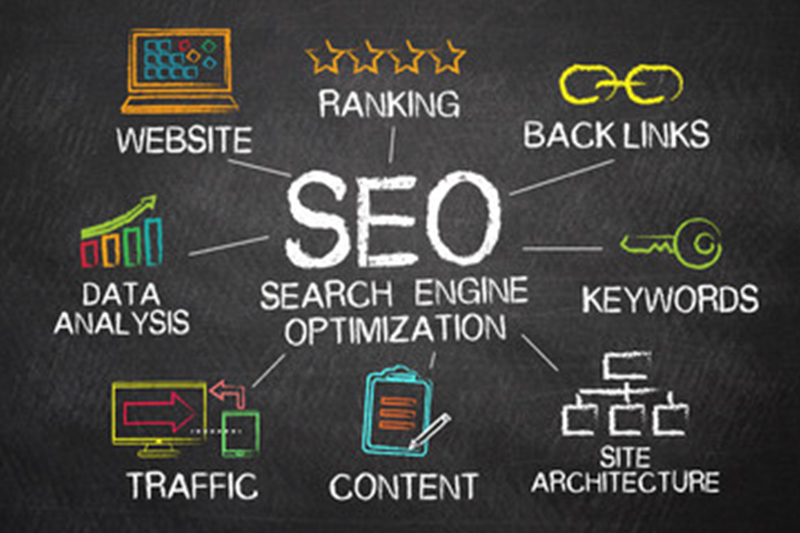Search Engine Optimization – How it works, why is it important
Search Engine Optimization (SEO) – A term you may or may not have heard in the past. In case you’re completely new, SEO is what it is abbreviated with – Optimization for search engine.
It is a set of rules that defines your business online and helps target the search engine to recognize it. There are tons of different search engines out there like Google, Bing, Yahoo, Yandex, etc. Since Google is the most famous among these, we will cover this for our discussion.
How does it work?
In general, a Search Engine just goes out and scrape a website to find pages and index them on their catalog. It’s very similar to a book that contains a numbered format to a chapter. As for readers, we just check the number list for easy navigation. Finding the location leads to more information on that certain chapter.
For Example, just go to Google and enter a query. The information listed on the first page is like the index of a book. By clicking each term leads to a website that contains further information on that given search query.
Why is it important?
SEO is an important part of the digital marketing term because people search thousands of queries every day, often looking for something on the internet. Since the search engine is the primary source of digital traffic, ranking our website on that particular search query can have a material effect on your website analytics.
However, SEO isn’t as easy as it may seem. It is time-consuming and comparatively takes a lot of time than its predecessor Search Engine Marketing.
SEO vs SEM
The main difference between these two terms is that SEO focuses on more of an organic approach while SEM focuses on paid search.
Here’s how it work:
Google Search results are divided into 2 categories: the paid and organic search results. As a goal of an SEO expert, we have to rank our website on the organic panel of the search engine.
The ranking for paid traffic depends on the pay per click (PPC). The more you invest in the system, the better the rankings.
However, don’t mix these two terms as they go side by side in the world of digital marketing. You can always achieve Paid traffic as well as organic results from the search engine.
SEO Pros
- Improved Traffic
- Target Visitors
- Better Conversion Rate
- Budget Friendly
- Contract Choice
SEO Cons
- Slow results
- No guaranteed Success
- Rankings are sometimes lost
- Competition
What are the Components of a Search Engine?
Now that we have covered the basics, let’s discuss how you can actually achieve a ranking on SERP. Google uses 200+ ranking signals to rank a website. Each of these signals are defined in the ranking algorithm, carefully analyzing your website for changes and omission. That said, SEO is divided into 4 categories:
- On-Page SEO: An On-page SEO refers to the changes you do inside your website. This includes content, image optimization, title tag, Meta description, webpage URL, embedded system, and more.
- Off-Page SEO: It refers to the changes you do outside your website parameters. The primary aim is to build trust and authority of our website. This includes building high-authority backlinks. However, you can achieve off-page signals through social sharing and building your own site authority like EAT.
- Technical SEO: It refers to the change that helps Google, what to crawl, and what not to. Technical SEO includes things like page load speed, Sitemap, error report, site architecture, etc.
- User Interaction Signals: Finally, the general audience also plays a vital role in the overall SEO journey. The way that users interact with your website helps figure out the Search Engine how effective it is. For example, if your page bounce rate is high, it means that people are not that much interested in your content. You may have optimized your website in a bad way or you’re just using Keyword stuffing to trick the search engine.
Google’s recent updates focus more and more on a User interface experience. Think about the last time you did a search, if you went on a website, that you thought had the answer but you had a hard time finding it, did you stick around? Or instantly switch to another website?
Most people will click back and go to a different website. Google analyzes even the tiniest of these details and uses it on their algorithms to rank a website. All of this is interconnected in a loop that ultimately leads to the results you’re hoping for, and that is Search Engine rankings.
What are some general types of SEO tools?
Mastering SEO results is hard, especially if just entering the game. Fortunately, there are tons of different tools available in the market, such as Keyword research tools, On-page checker, off-page checker, technical SEO, site relevancy, Site explorer, and more.
SEO tools can save you a tedious amount of time in data analysis and keyword research. With these, you’ll get a path to understand all the cores of better ranking. If all goes better, you can structure your next page using the same format. Here are some prominent SEO tools that you should try.
- Google Search Console: Site Performance
- Google Analytics: Measure site analytics
- Ahref: SEO Keyword Tool
- Google Trends: Latest Trend checker
- MOZ Pro: SEO Software
- SpyFu: SEO Tool
- Majestic: Marketing SEO Tool
- Keyword Everywhere: Keyword SEO Tool
- Screaming Frog: SEO Software
- KWFinder: SEO Keyword Tool
The Future of SEO
Google on one side is constantly improving its algorithm to better rank a website on Search Engine. On the other side, SEO tactics are evolving in response to the changes. Knowing how search engines works will definitely help you to get better organic results.
That being said, there’s no guarantee that what happened today will work the next year. Don’t let this panic you. Generally speaking, if your site content is good and you have a decent authority, you will get results one way or another. As a webmaster, your job is to always keep learn and exploring new ideas.






